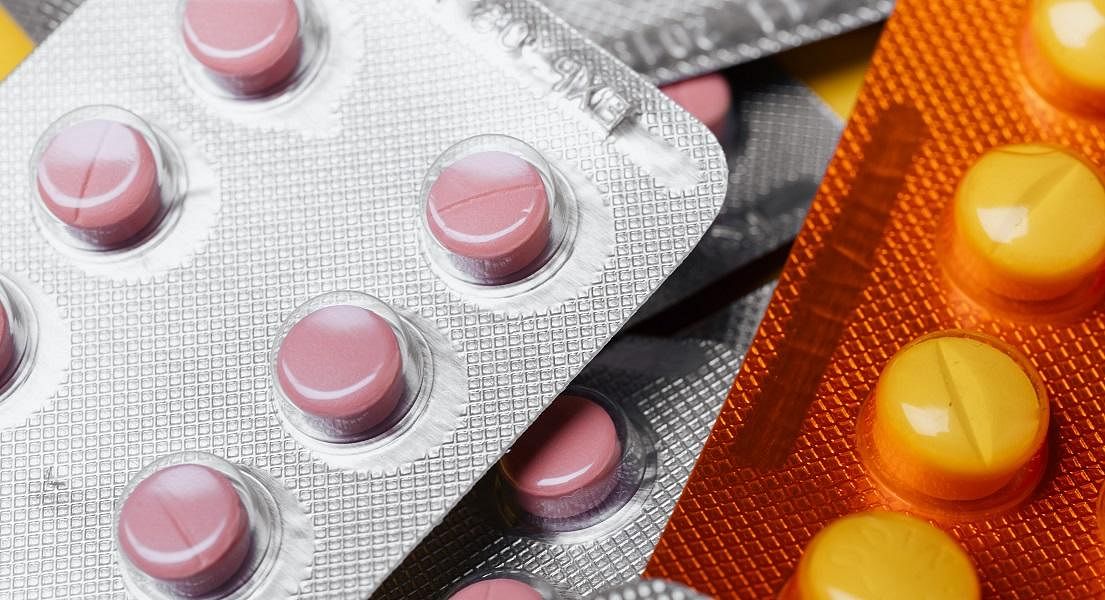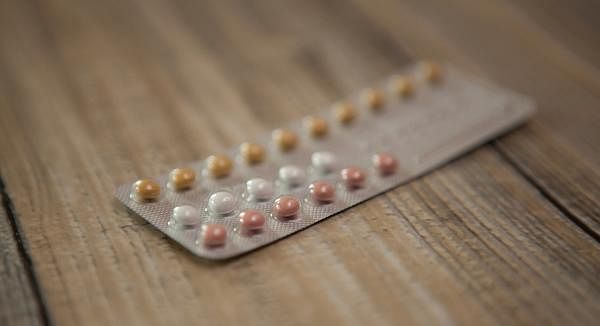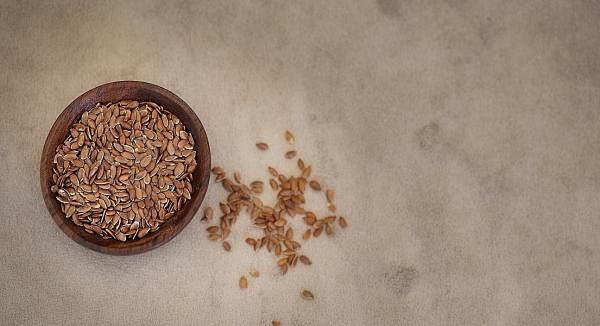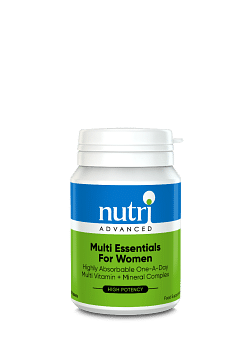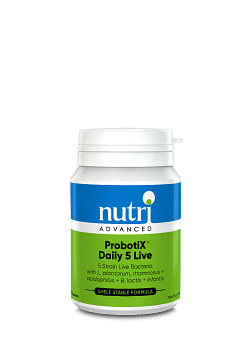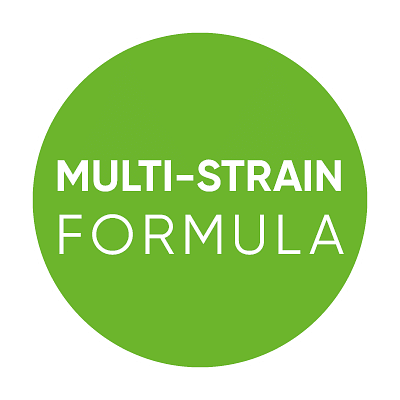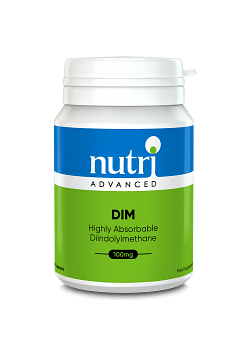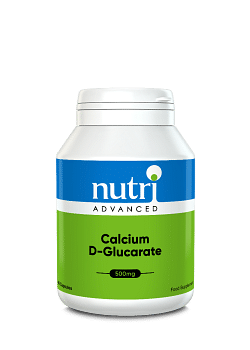Nutrients Commonly Depleted By The Pill or HRT
Why you can trust Nutri Advanced Every article on our site is researched thoroughly by our team of highly qualified nutritionists. Find out more about our editorial process.
Millions of women in the UK regularly take oestrogen-containing medications such as the contraceptive pill or hormone replacement therapy (HRT). The contraceptive pill can be an effective way to avoid unwanted pregnancies, whilst HRT1 is used by women later in life to minimise uncomfortable symptoms associated with the menopause.
Whilst these medications are a really useful support for many, it’s important to understand that they can have negative effects on many essential nutrients too. When nutrients start to become imbalanced, the knock-on health effects can be widespread, so it’s important to understand which ones you are most at risk of so you can take steps to bring them back into balance.
In this article, we take a closer look at some of the nutrients that may be affected by oestrogen-containing medications such as the contraceptive pill or HRT and what you can do about this.
Nutrients commonly depleted by oestrogen-containing medicines:
• Iodine – Many of the common brands of contraceptive pill and HRT contain a synthetic form of oestrogen such as estradiol or ethinyl estradiol, which may impact cellular ability for iodine uptake. Iodine is an important mineral for fertility2, is needed by the body to make thyroid hormones, is essential for immune function, for breast and prostate health and supports the ability of the liver to detoxify harmful substances such as mercury, fluoride and bromide.
• Magnesium – An essential mineral which is commonly lacking in typical Western diets, used up in high amounts during fast-paced busy lifestyles and to add insult to injury may be depleted by oestrogen-containing medications3. Magnesium is involved in over 300 metabolic pathways in the body so low levels can have widespread effects. Magnesium deficiency is commonly associated with chronic pain, cramps, spasms, depression, anxiety, insomnia and high blood pressure.
• Manganese – Oral contraceptives may interfere with the absorption of manganese; an essential mineral for proper enzyme functioning, nutrient absorption, wound healing, antioxidant function and bone development.
• Zinc – Another essential mineral which may be depleted by oestrogen-containing medications4; low zinc is associated with weight gain, hypothyroidism, chronic diarrhoea, low immune function and lack of sex drive.
• B complex vitamins & folate – Both HRT and oestrogen-containing oral contraceptives may affect levels of the complex of B vitamins and folate. There are many symptoms associated with B complex vitamin deficiency from fatigue and depression to headaches, nausea, numbness and even weight gain.
• Vitamin C – This water-soluble nutrient may be depleted by HRT and the contraceptive pill. Vitamin C is important for the immune system, for collagen formation, is a powerful antioxidant and also helps the body to utilise iron.
Here's what you can do about it...
Supplements
Take a high quality daily multivitamin and mineral supplement that contains a full range of vitamins and minerals. Ensure the product you choose contains iodine, magnesium, manganese, zinc, B complex vitamins, folic acid (5-MTHF form) and vitamin C.
Di-indolylmethane (DIM) ) is a natural substance that is derived from cruciferous vegetables such as broccoli. It helps to support the safe metabolism of oestrogen in the body. Supporting the body’s ability to metabolise and eliminate hormones is especially important when taking oestrogen-containing medications.
Calcium-d-glucarate is a natural compound that helps to support a healthy oestrogen balance in the body. This balance is particularly important when taking oestrogen-containing medications.
Daily dose of high quality beneficial bacteria to support a healthy gut microbiome which in turn helps to support a healthy oestrogen balance.
Choose an organic diet rich in wholefoods containing plenty of brightly coloured fruits and vegetables, fibre, cruciferous vegetables such as broccoli and cauliflower, phytoestrogen-rich foods such as miso and tempeh and fermented foods and drinks such as kefir, kombucha, kimchi and sauerkraut.
Drink plenty of fresh filtered water and avoid plastics where possible.
Take action to reduce stress, incorporate more time for self-care and pay attention to your sleep hygiene if these are areas you need to address.
References:
1. Hormone replacement Therapy, NHS website. Hormone Replacement Therapy.
2. Mathews, D. M., Johnson, N. P., Sim, R. G., O'Sullivan, S., Peart, J. M., & Hofman, P. L. (2021) Iodine and fertility: do we know enough? Human reproduction (Oxford, England), 36(2), 265–274.
3. Dante, G., Vaiarelli A., Faccinetti, F., (2014). Vitamin and mineral needs during the oral contraceptive therapy: a systematic review. International Journal of Reproduction, Contraception, Obstetrics and Gynecology. Vol.2. No.1.
4. Palmery, M., Saraceno, A., Vaiarelli, A., & Carlomagno, G. (2013).Oral contraceptives and changes in nutritional requirements. European review for medical and pharmacological sciences, 17(13), 1804–1813.
This website and its content is copyright of Nutri Advanced ©. All rights reserved. See our terms & conditions for more detail.
Nutri Advanced has a thorough research process and for any references included, each source is scrutinised beforehand. We aim to use the highest value source where possible, referencing peer-reviewed journals and official guidelines in the first instance before alternatives. You can learn more about how we ensure our content is accurate at time of publication on our editorial policy.
Most Popular Articles
-
7 Surprising Ways To Support Your Magnesium
If you are displaying signs of a magnesium deficiency, here are 7 ways to boost your magnesium levels that are easy to incorporate into your daily life. -
5 Best Vitamin C Supplements Picked By Our Experts
Learn more about the different types of vitamin C, the different benefits you get from different types, and what you get for spending more on a good supplement. -
Top 5 Vitamins For Energy And Tiredness Picked By Our Experts
The 5 best and most important vitamins for energy & tiredness including B vitamin food sources & best supplement forms for energy. -
Benefits of Myo-Inositol for Polycystic Ovary Syndrome (PCOS)
In this research review article, we take a closer look at a lesser-known natural compound called myo-inositol that has been found to have significant potential to improve many of the prevalent features of PCOS. -
Top 10 Reasons to Give Your Kids Omega-3
Read the top 10 reasons that kids should have plenty of Omega-3- an essential fatty acid- including for depression, brain function, sleep & reading/maths skills.

